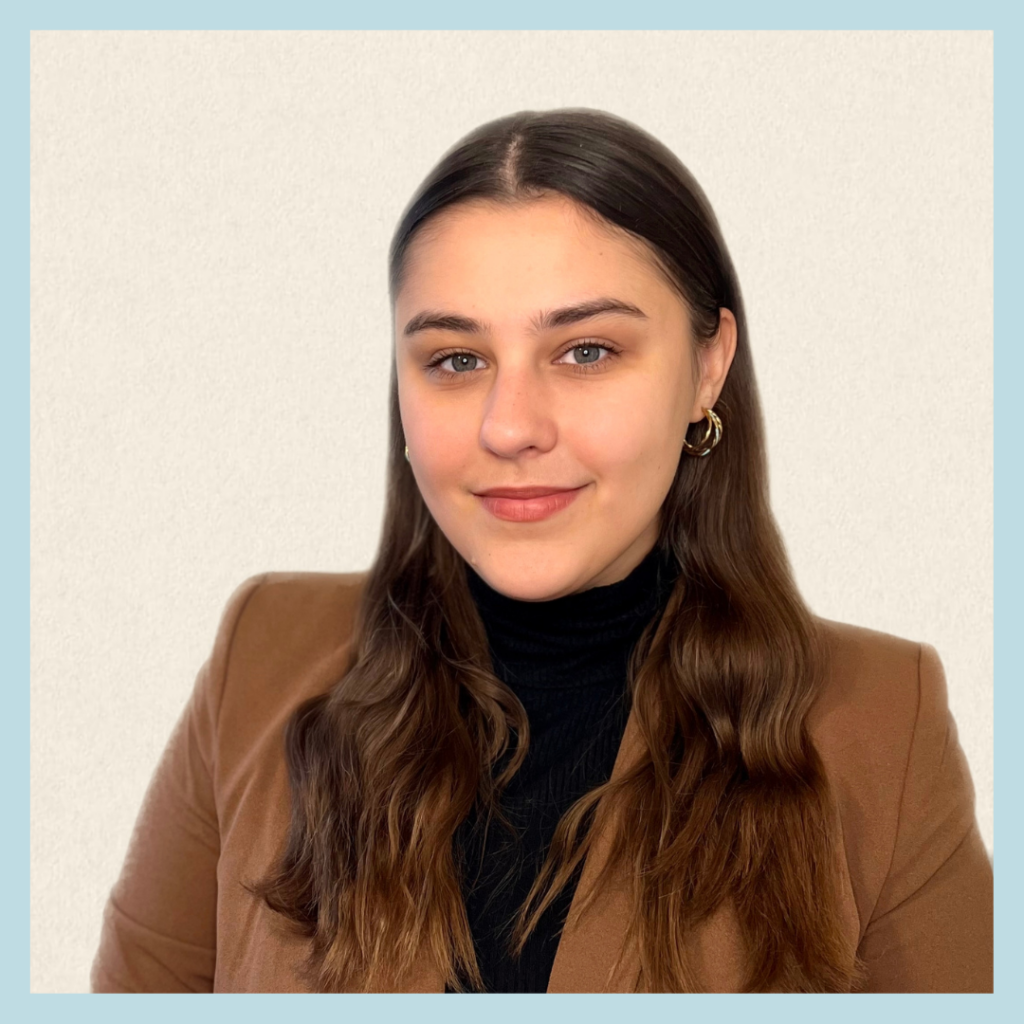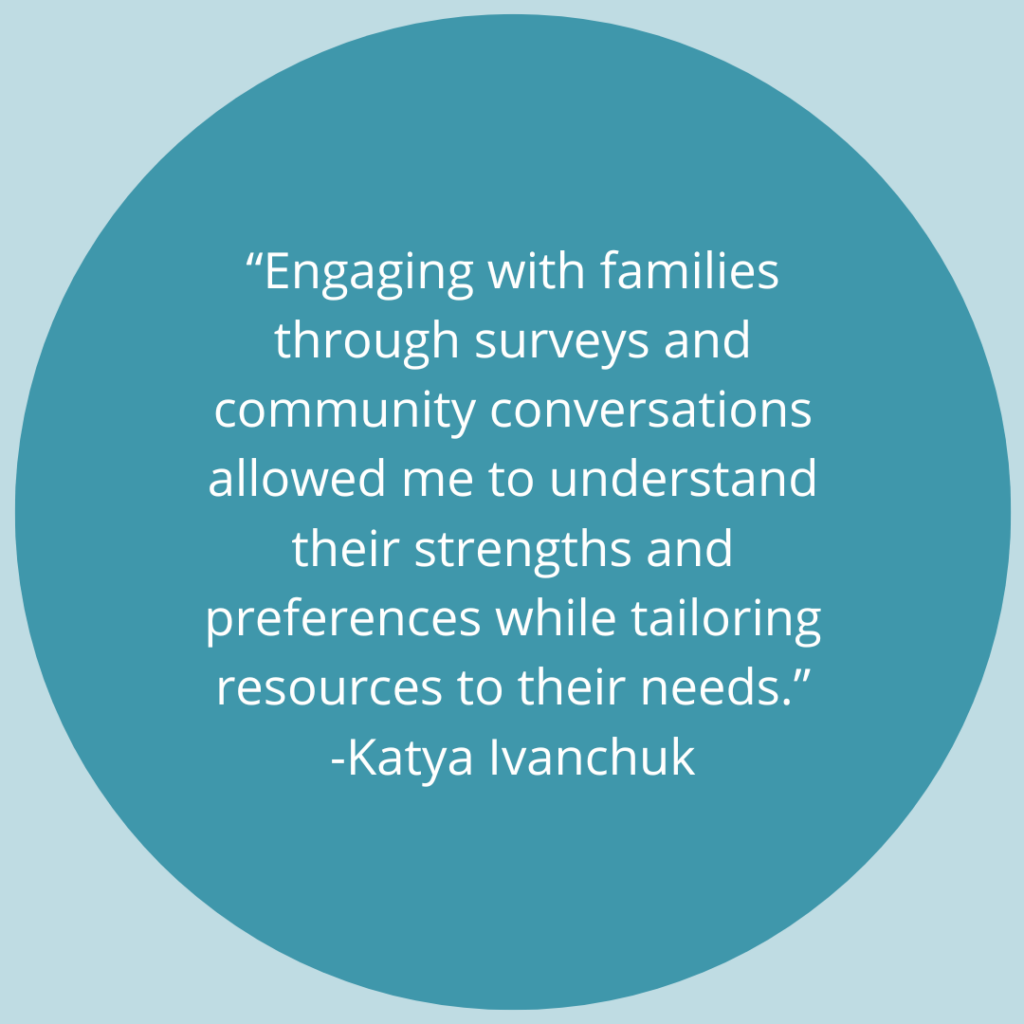#UMNMCH student Katya Ivanchuk (MCH 2025) reflects on her deployment with Leap Pediatric and Adolescent Care in St. Paul, where she worked on a community needs assessment, literature review, and resource outreach campaign. Her work focused on enhancing the health and wellness of families by researching local organizations and promoting family-centered support.
Leap Pediatric and Adolescent Care in St. Paul
Leap Pediatric and Adolescent Care in St. Paul was founded by Dr. Julia Joseph-Di Caprio (Dr. Julia), a dedicated pediatric and adolescent medicine specialist with over 30 years of experience in the Twin Cities. Dr. Julia created Leap to address the need for high-quality healthcare for families facing obstacles to care. The clinic emphasizes personalized, family-centered care, helping parents navigate their child’s health journey with support and resources including nutrition and wellness. From on-site lab services to guidance through referrals and wellness advice, Leap prioritizes building meaningful lifelong relationships with families. Dr. Julia’s goal is to ensure every child receives compassionate, expert care in a welcoming environment. At Leap, I worked alongside alumni Katie Lins on projects aimed at advancing the health and wellness of families in St. Paul.
Advancing Community Support and Resources at Leap
At Leap Pediatric and Adolescent Care, I conducted a literature review to explore the informal resources families and adolescents utilize to address health and well-being concerns. The review focused on platforms such as social media, blogs, peer support groups, local community programs, and school-based services to uncover recurring patterns, challenges, and emerging practices in how adolescents and their families access and interact with these resources. The findings revealed that families and adolescents were more likely to seek support from others with shared experiences, emphasizing the importance of community-specific resources. For instance, language-specific Facebook parent support groups were particularly effective at creating connections and sharing health advice. These insights were important in shaping our future work of building a resource list and conducting a community needs assessment to better understand the needs of families and adolescents in St. Paul.
Building on the literature review, we developed a multilingual community needs assessment survey in English, Spanish, and Somali. We collaborated with local translators to ensure that the survey was high-quality and understandable. The survey included tailored questions to identify the resources and services families currently accessed, as well as barriers such as transportation. For instance, we asked whether families used public transit or personal vehicles to assess their ability to reach certain services. The survey also included questions about what additional support families might find helpful, such as after-school programs or guidance on discussing social media use with children. An open-ended question invited families to share organizations, non-profits, or support groups they were already involved with, recognizing the importance of listening to their experiences to inform us about organizations we may not have previously known about and to explore them further. We also had the opportunity to administer the survey at a St. Paul community event, where we provided backpacks and books to children.
To ensure Leap families had knowledge of various local resources, we compiled a comprehensive list of no- to low-cost organizations focused on mental health, food and nutrition, mindfulness, and community-specific support. Staying true to Leap’s mission of providing care beyond the clinic, we included resources for free music and theater classes as well as virtual mindfulness programs. We prioritized services located along the St. Paul Green Line to minimize transportation concerns. I also reached out to local organizations, such as the Hallie Q. Brown Community Center, which has been supporting families since its founding in 1929, to better understand the needs of the families they serve. The center has a long history of serving St. Paul families, particularly in the historic Rondo Community, by providing access to critical human services and programs that support youth and foster personal growth and self-sufficiency. Given their close work with families, we knew their staff would have valuable insights into community needs and additional ways Leap could better support them. Hearing directly from their staff provided valuable insights into what resources we should include in our list and informed its development.
Another project I worked on was creating a newsletter for National Adolescent Health Month in May. The newsletter featured family-friendly community events, discussions on adolescent health topics, activities for families, and highlights of youth-centered community organizations. Designed for Leap families, the newsletter aimed to inform them of available resources and reinforce Leap’s commitment to providing support that extends beyond clinical care.
Application of the L.I.F.E. Framework
I applied the L.I.F.E. framework throughout my deployment with Leap Pediatric and Adolescent Care, particularly focusing on Family-Professional Partnerships and Interdisciplinary Collaboration. The multilingual needs assessment survey, resource list, and May newsletter reflected the leadership competencies of Communication, Team Building, and Working with Communities and Systems. By collaborating with translators, local organizations, and families, I prioritized community-specific approaches to supporting family well-being. Engaging with families through surveys and community conversations allowed me to understand their strengths and preferences while tailoring resources to their needs. Meeting with organizations like the Hallie Q. Brown Community Center highlighted the value of interdisciplinary teamwork and respectful communication. These efforts demonstrated how family voices and professional collaboration can create meaningful solutions for better community health.
BIO
Katya will be graduating from the UMN MCH program in May 2025. Katya received her BS in Family Social Science from the University of Minnesota, Twin Cities. She is currently working with the Minnesota Department of Health’s Oral Health Program, focusing on communications, planning community oral health education events, and distributing educational materials to local organizations.
Interested in learning more about getting a degree in MCH? Visit our MCH Program page for more information.
#UMNMCH #UMNproud #UMNdriven

